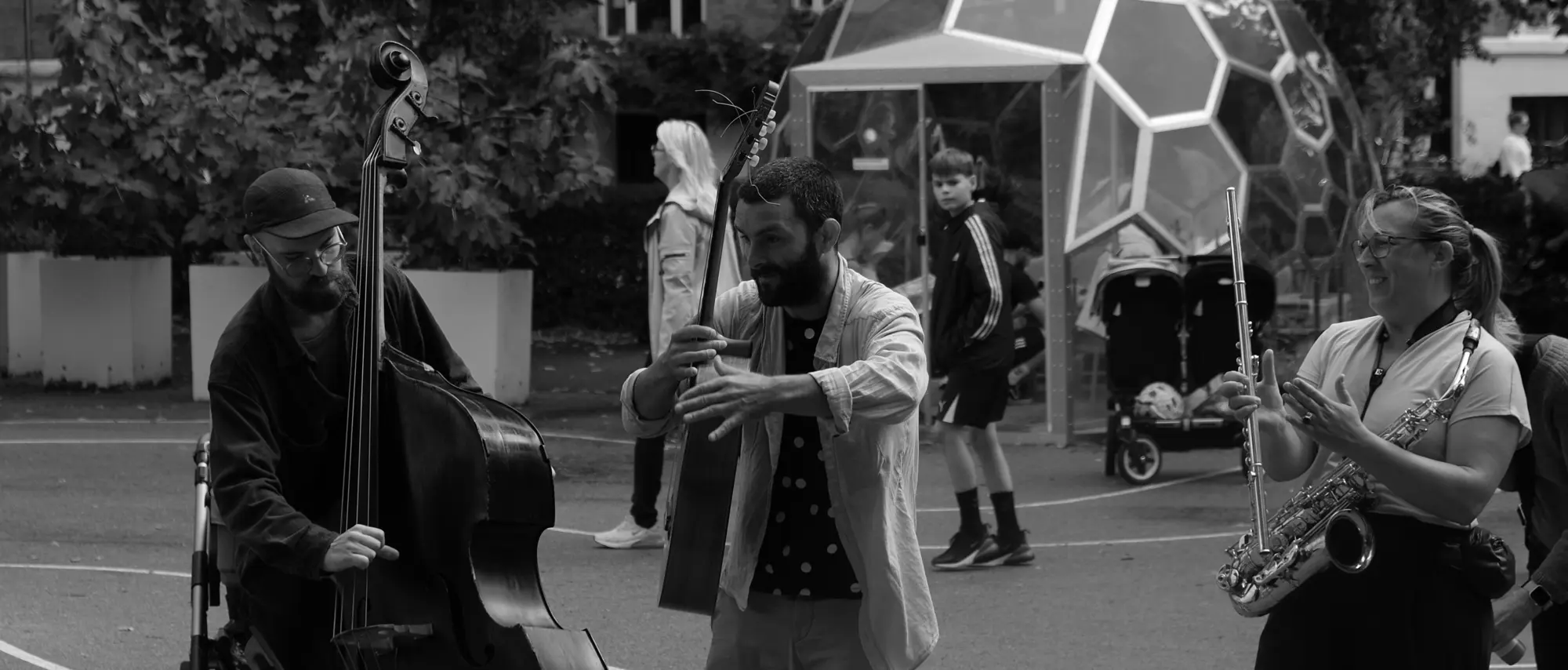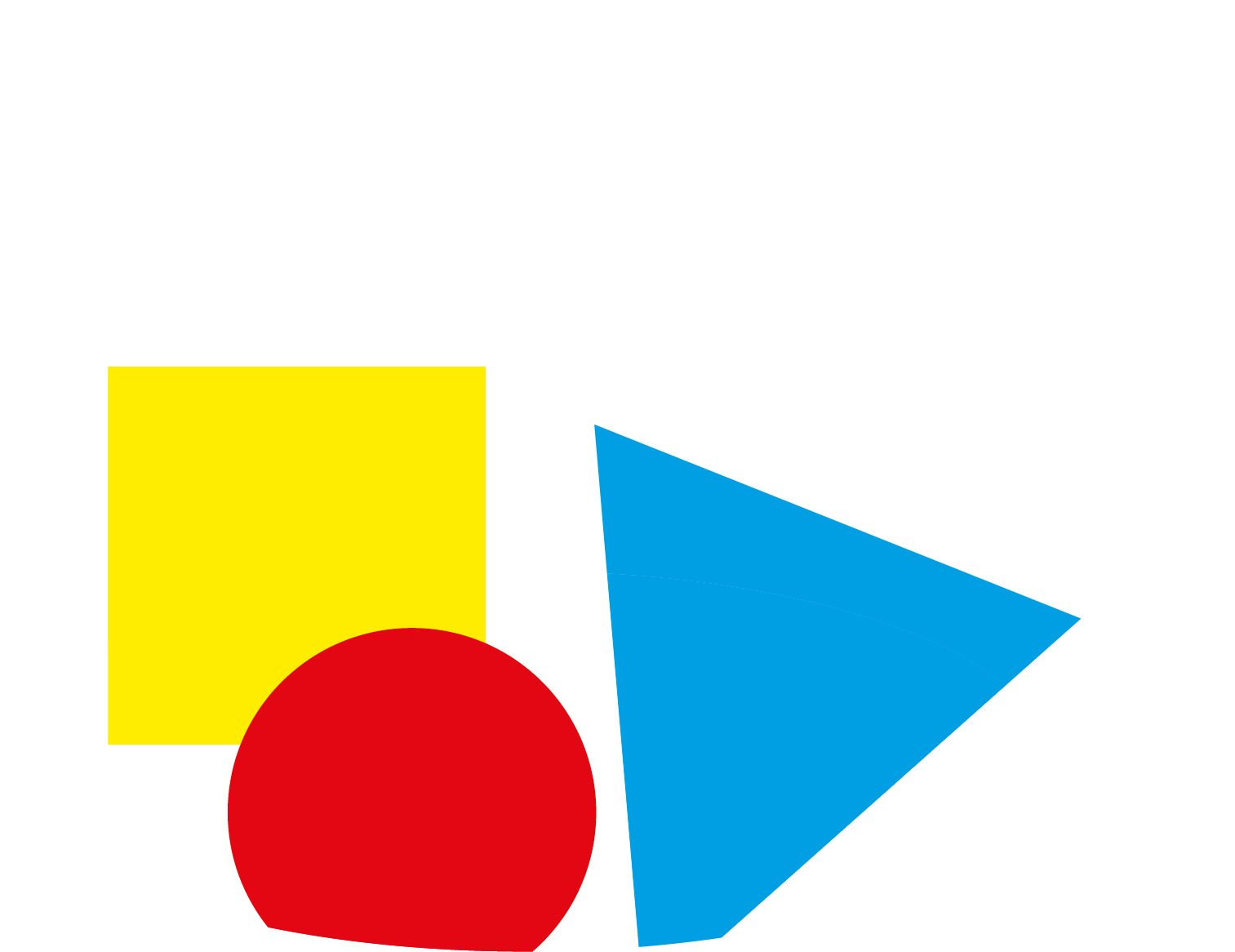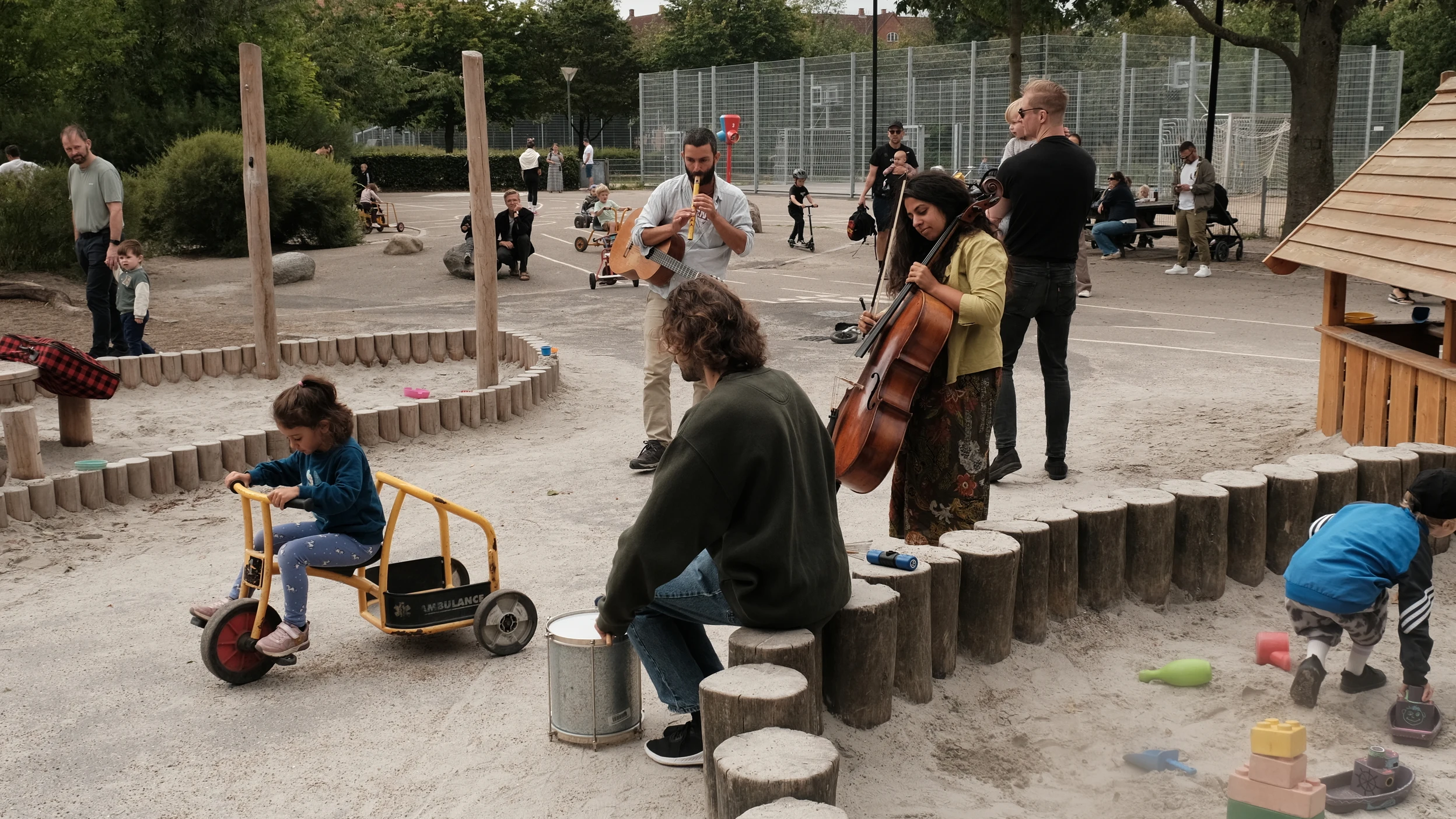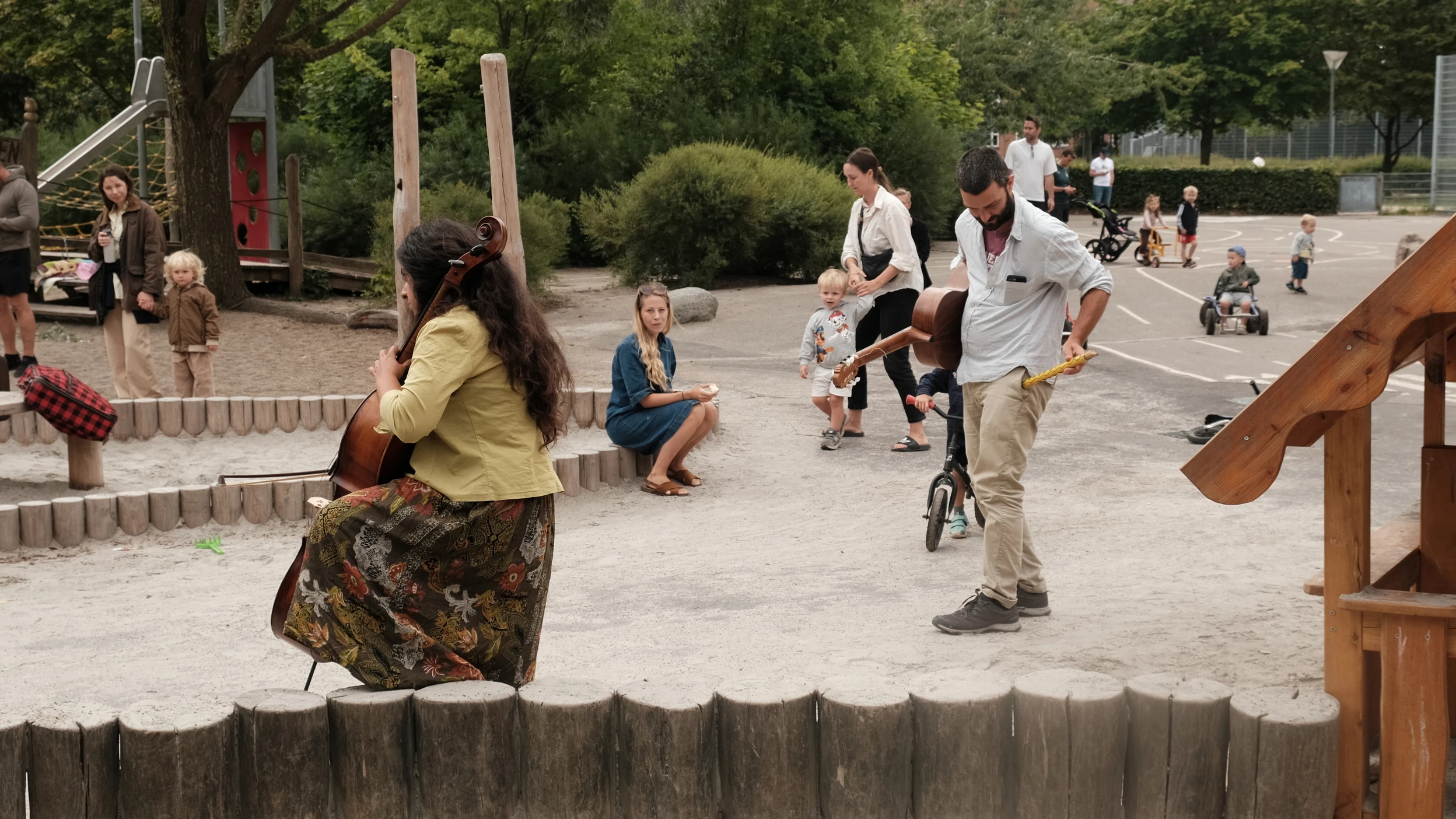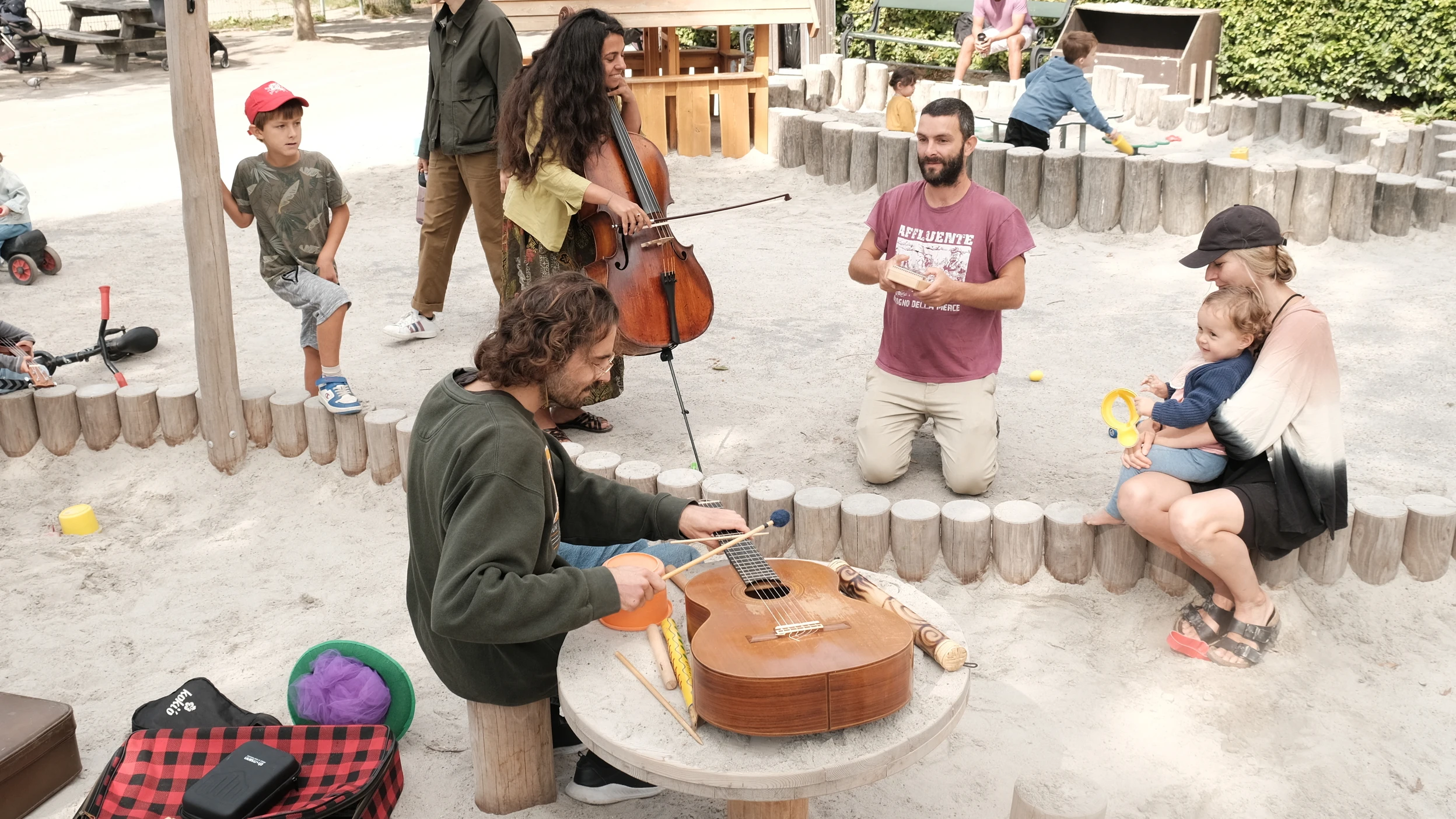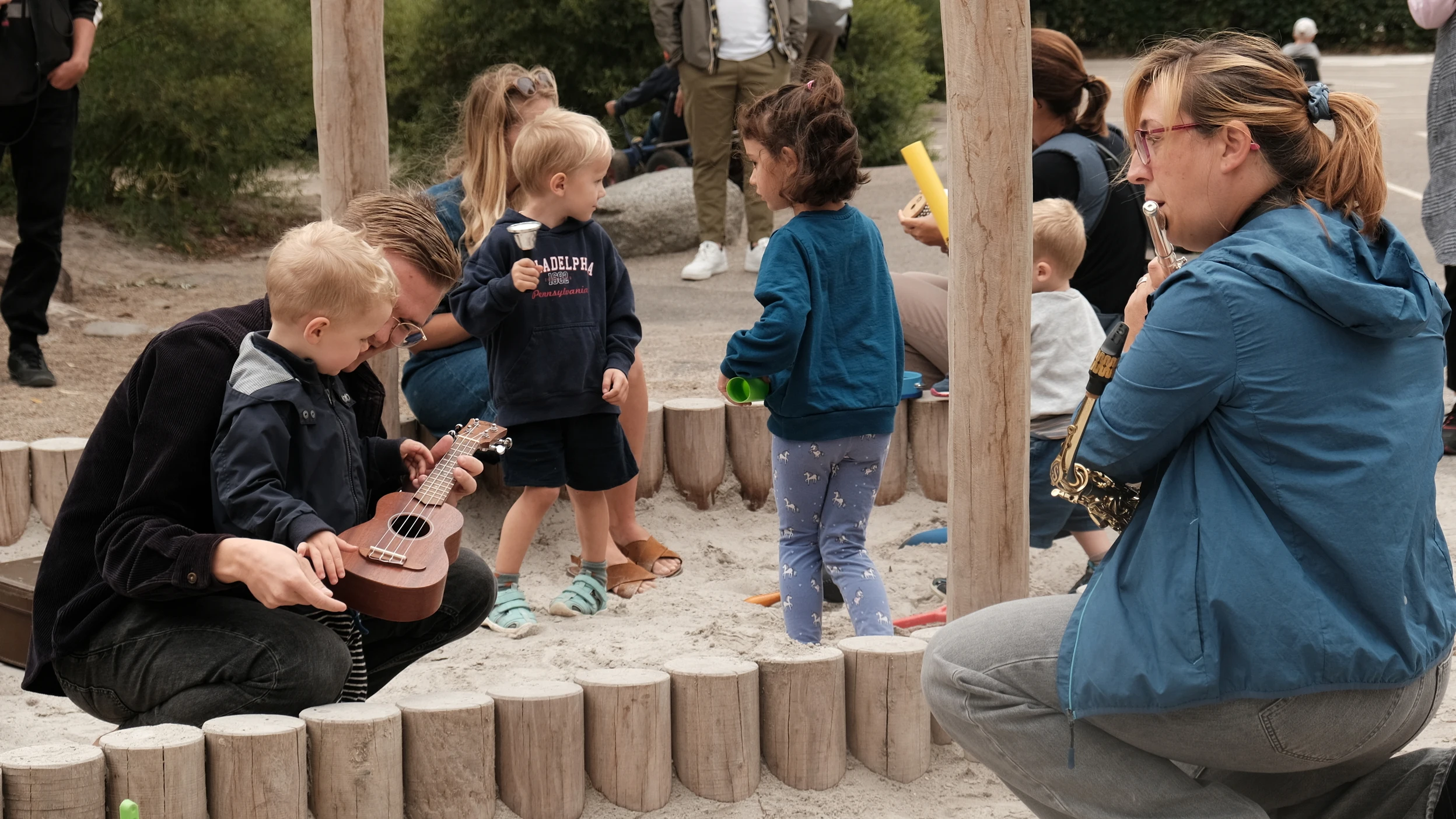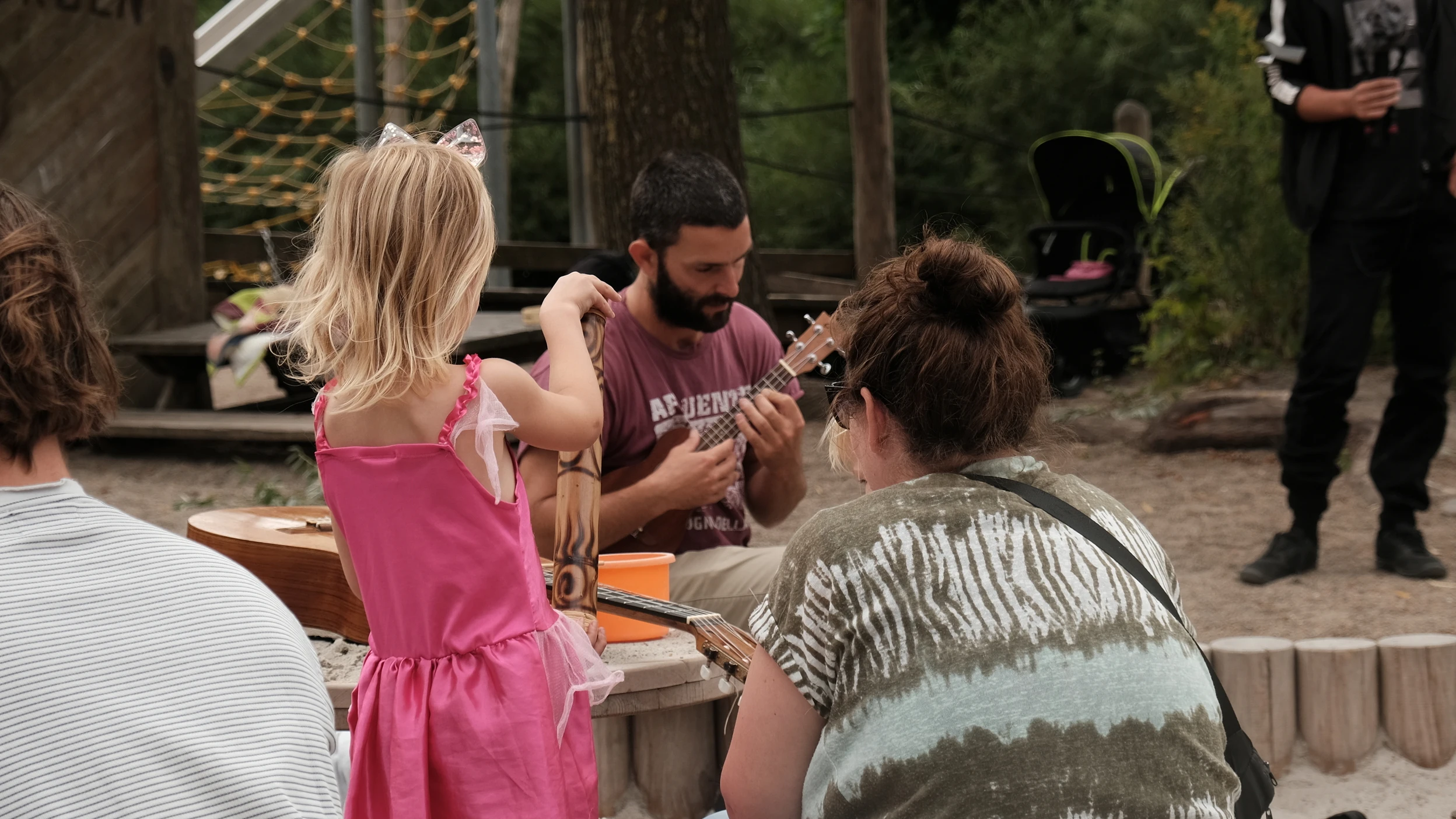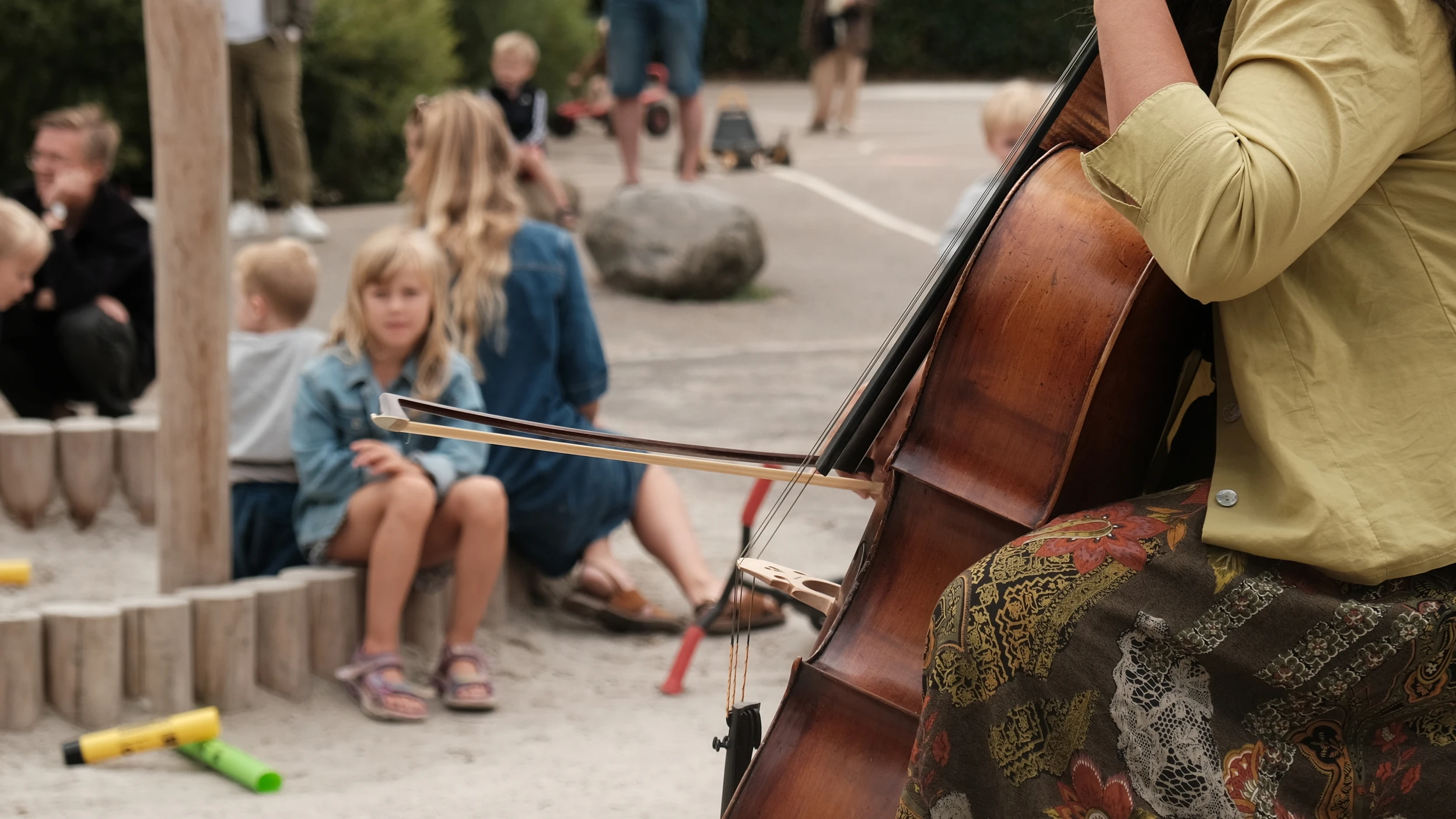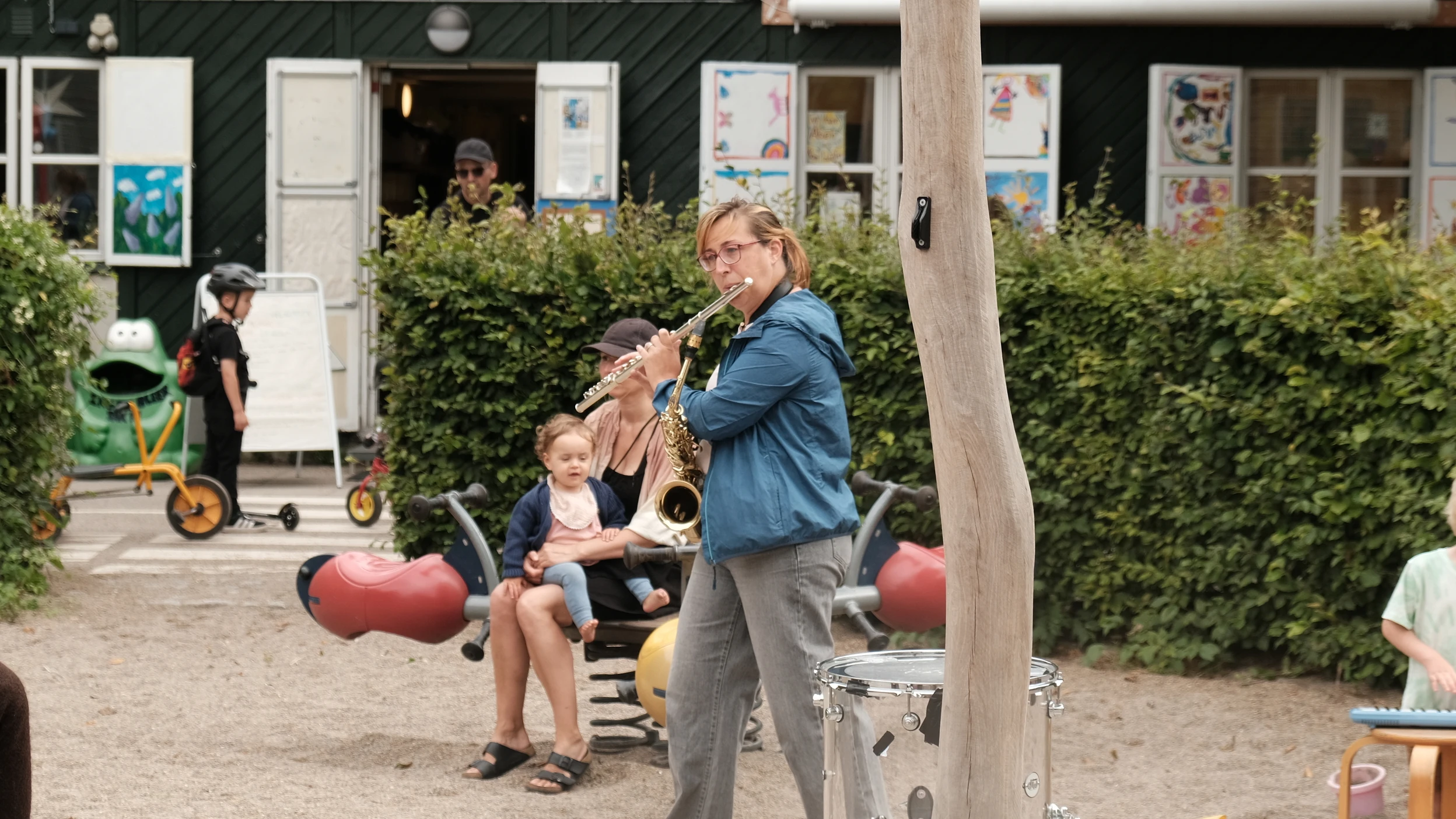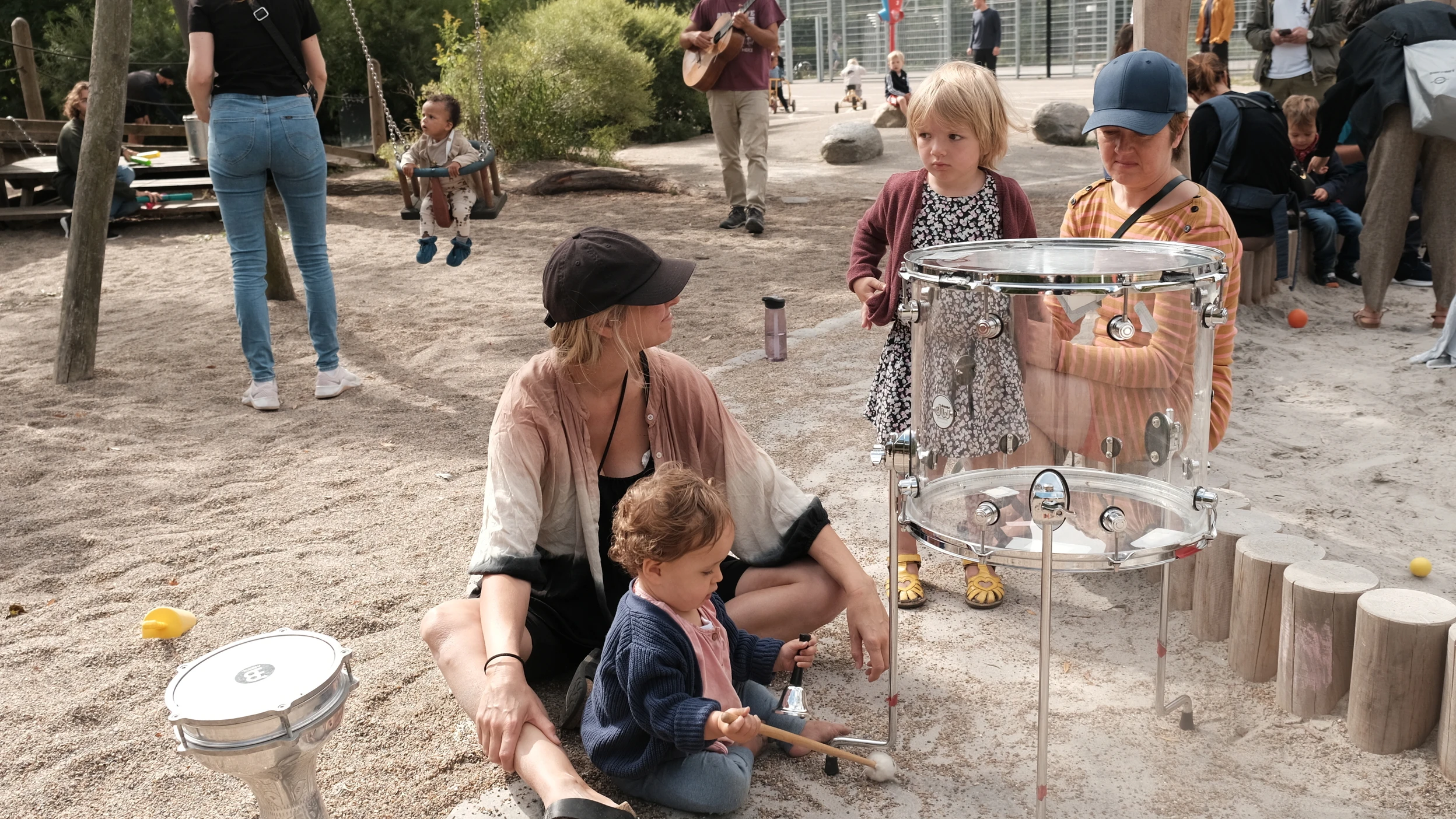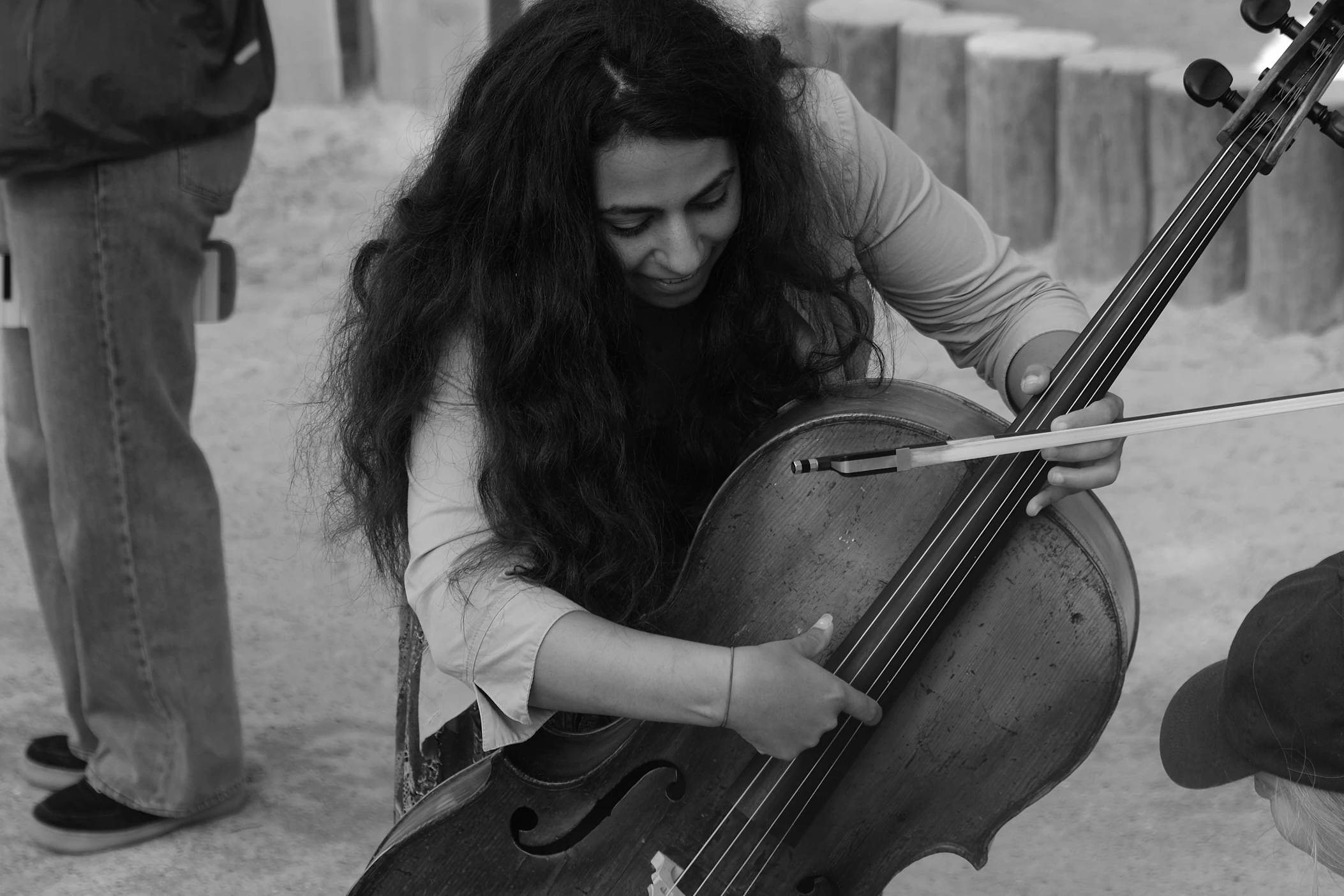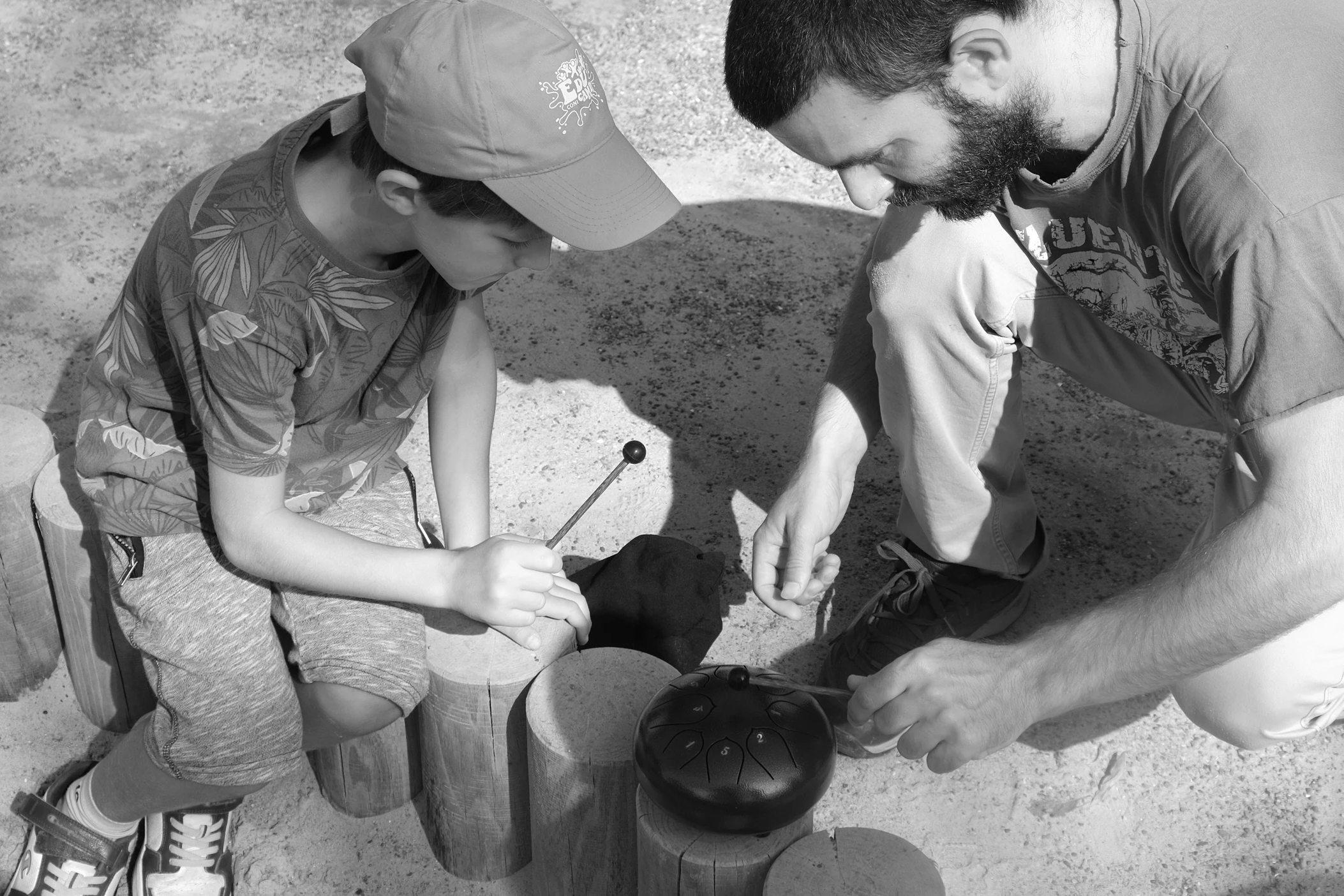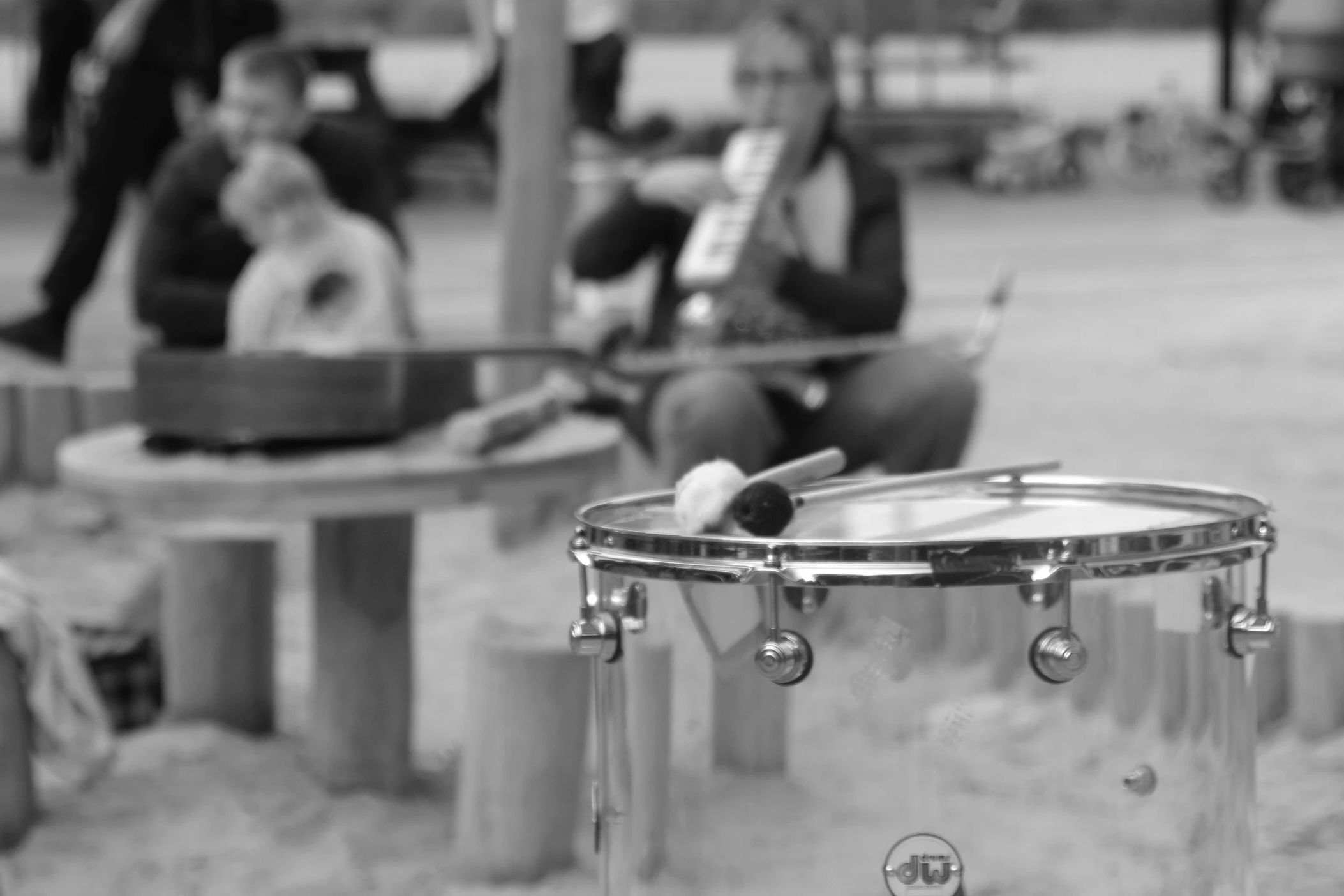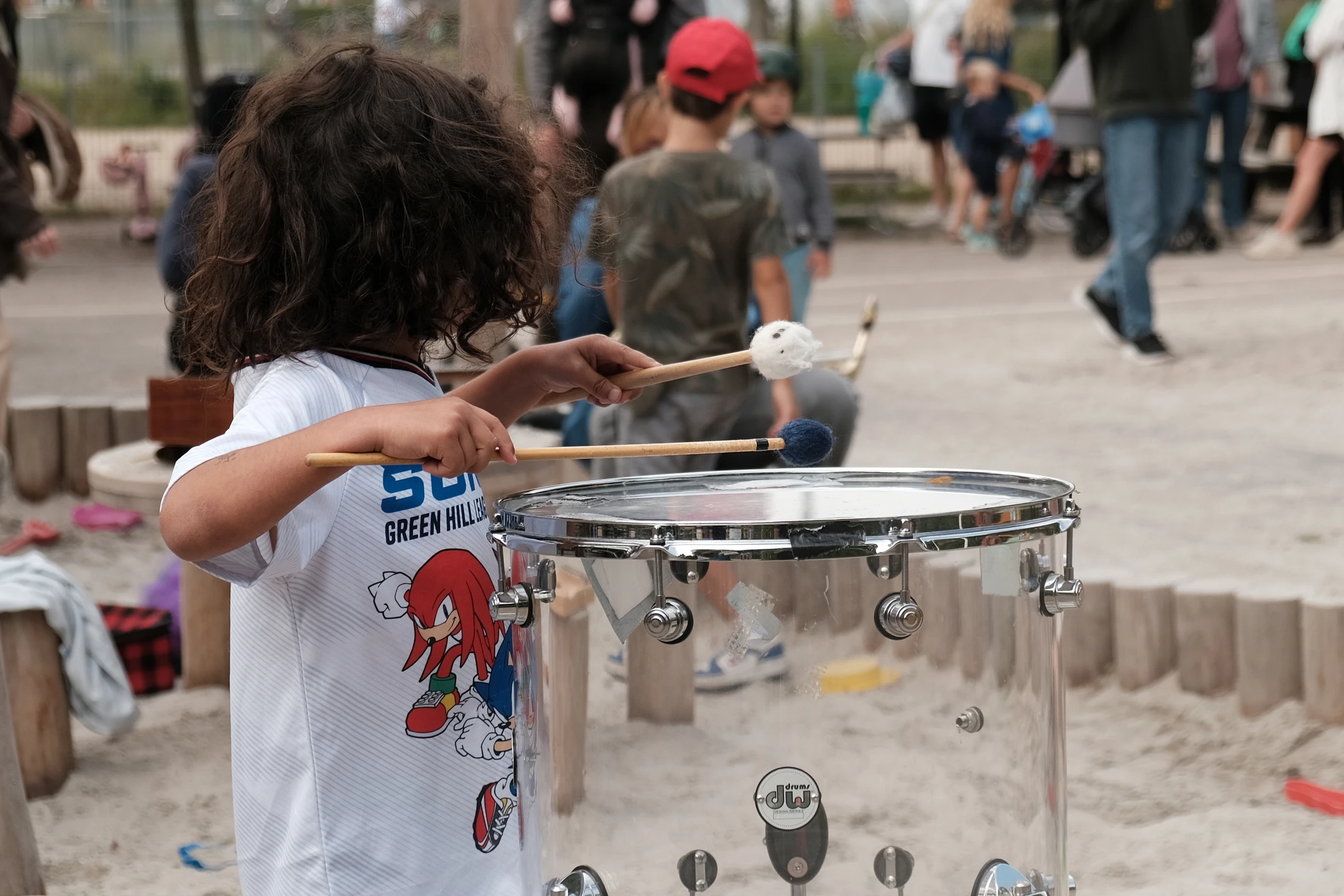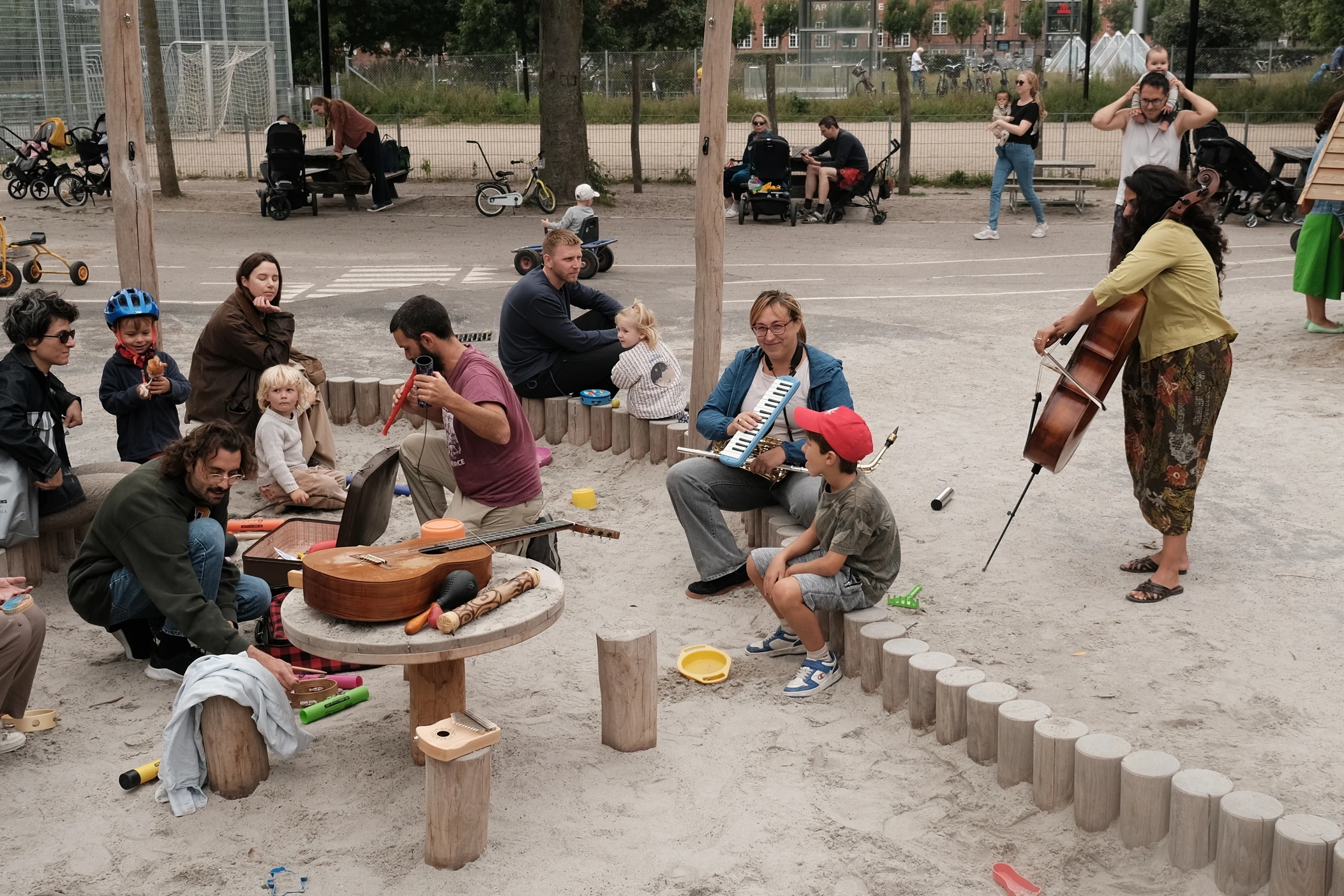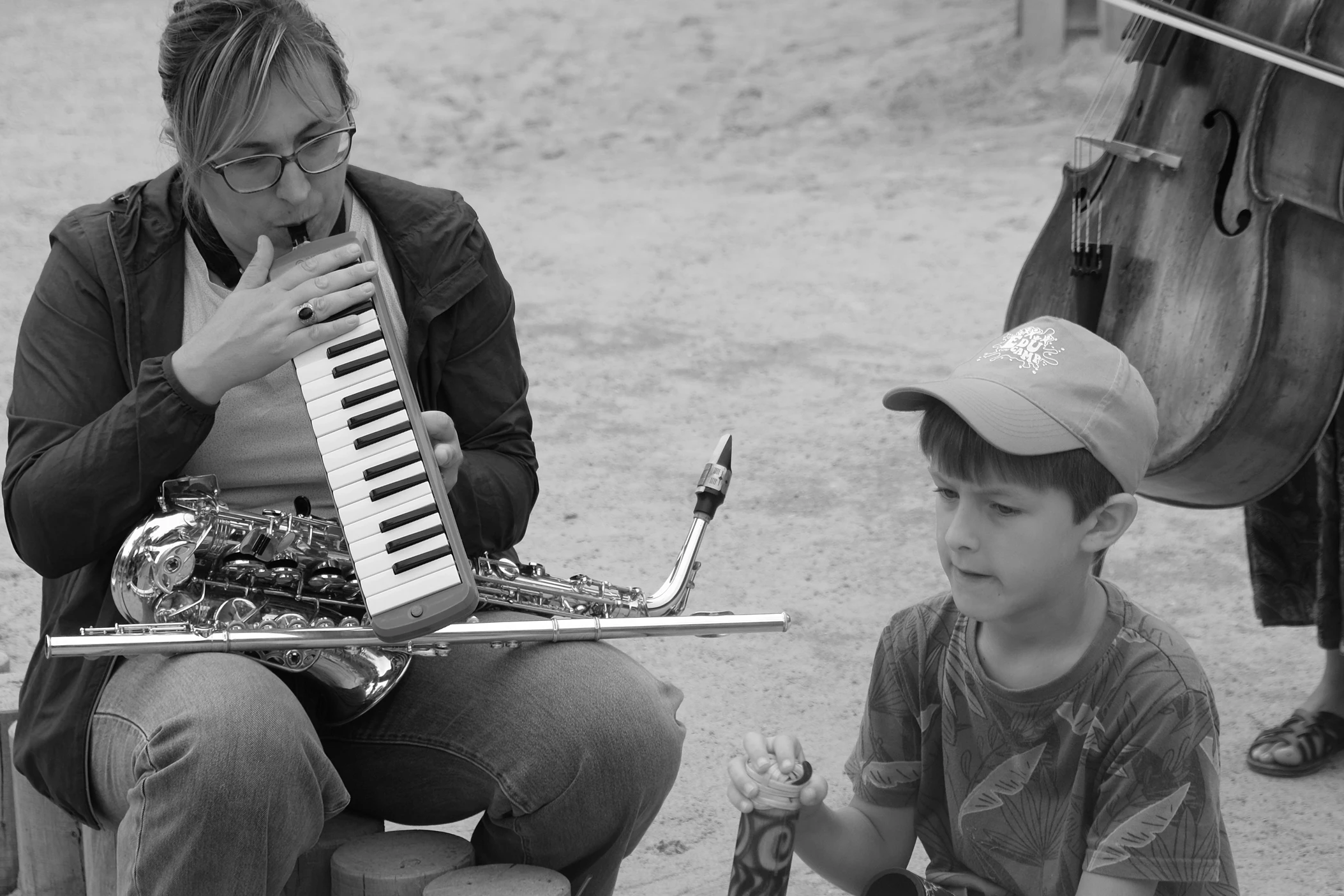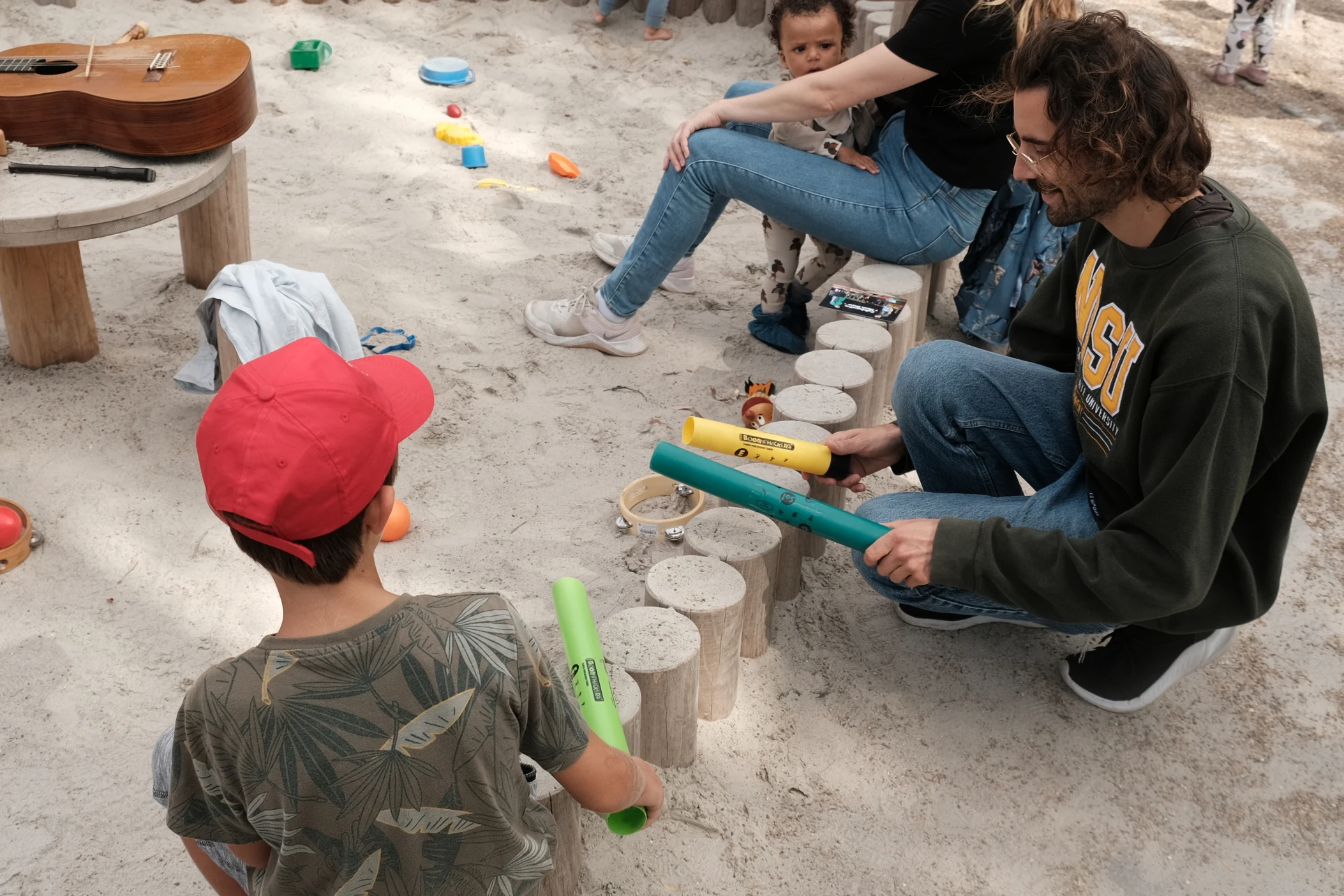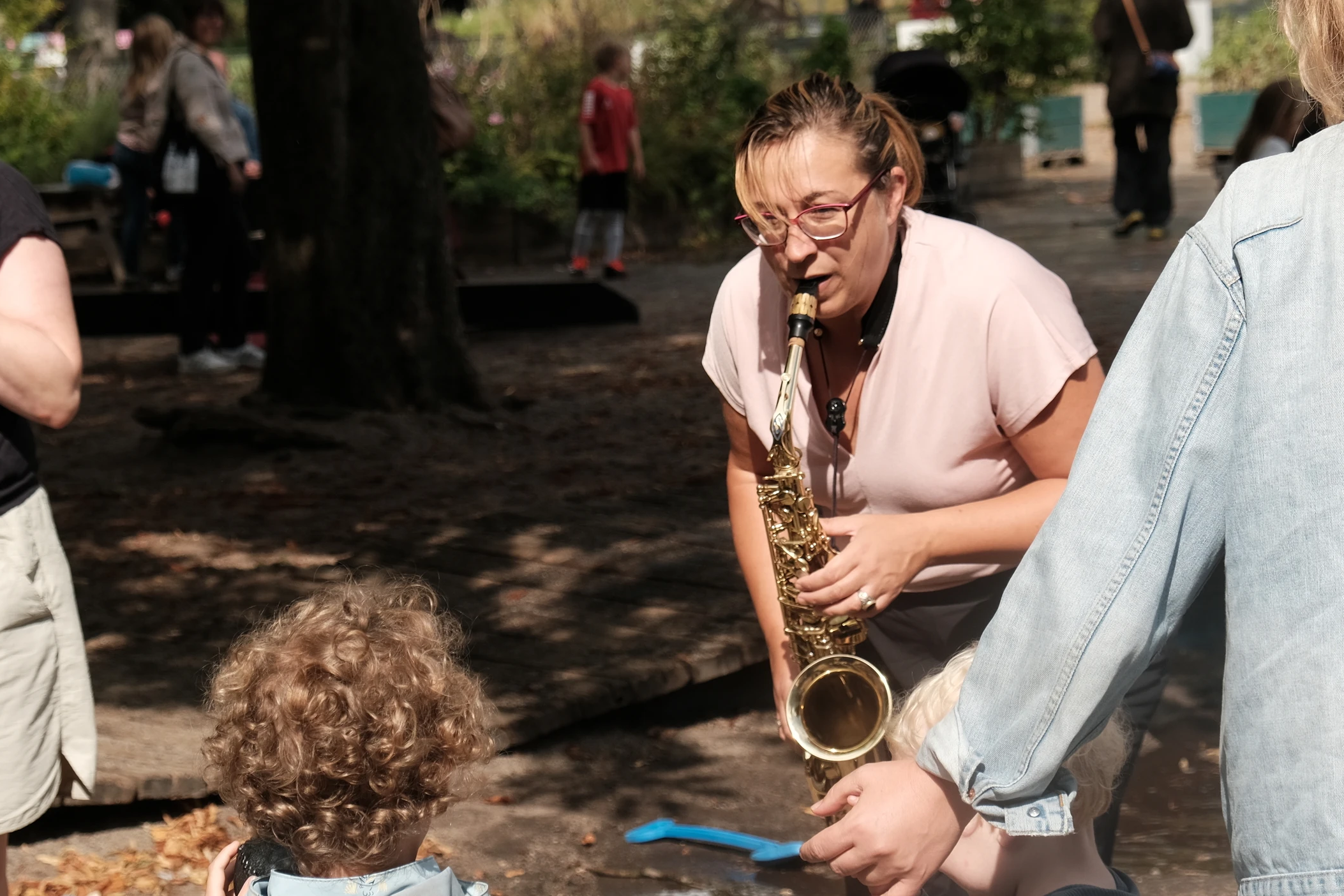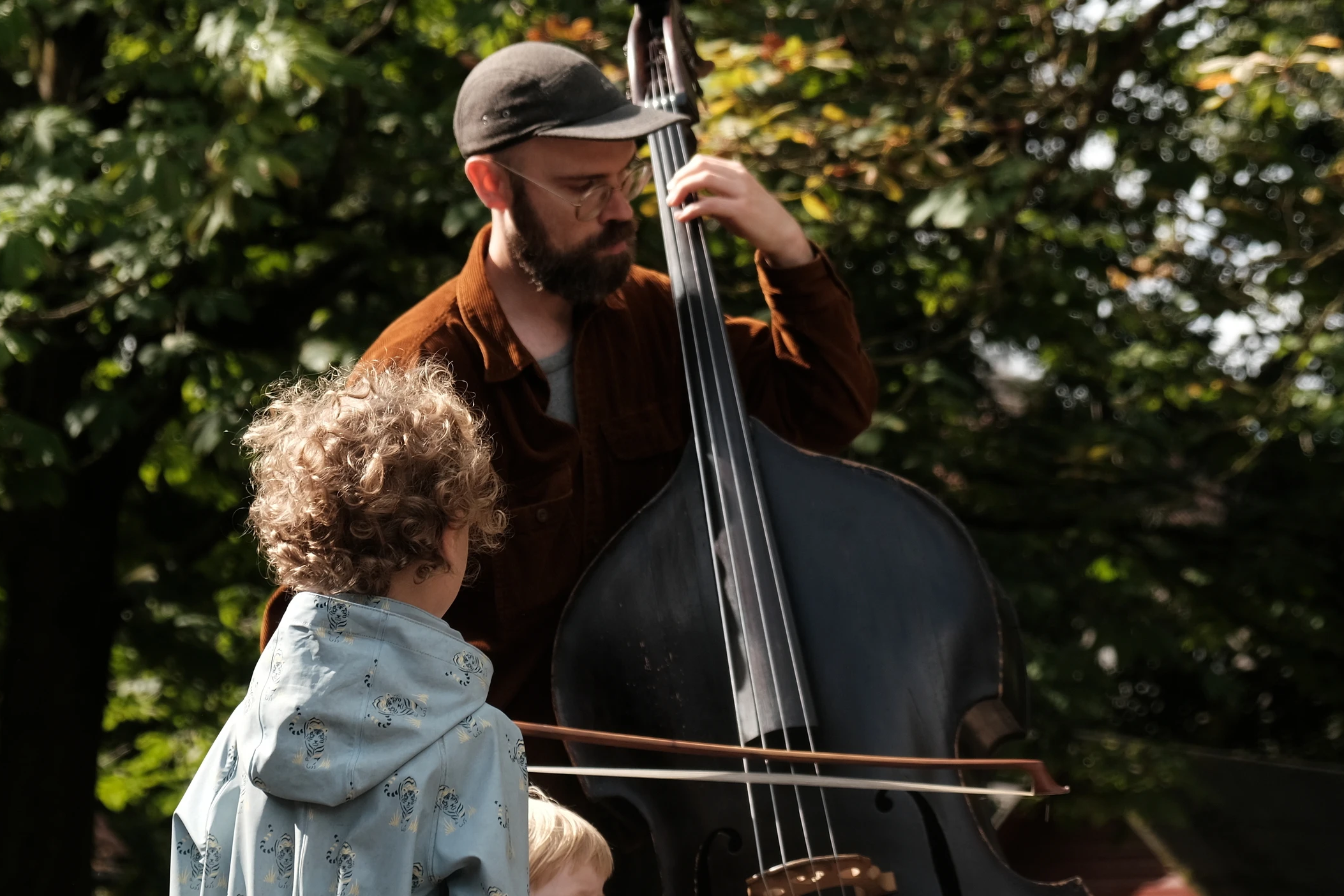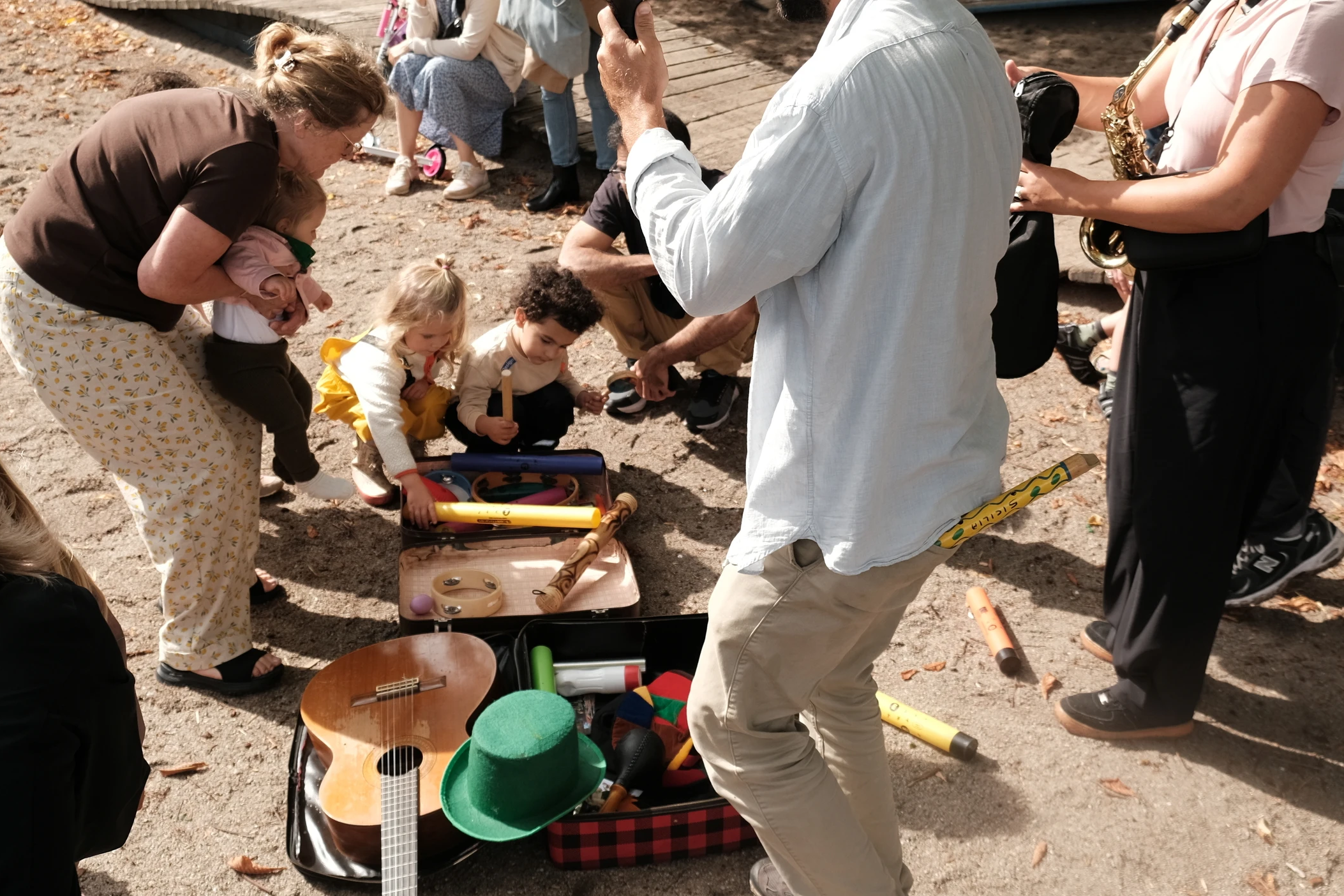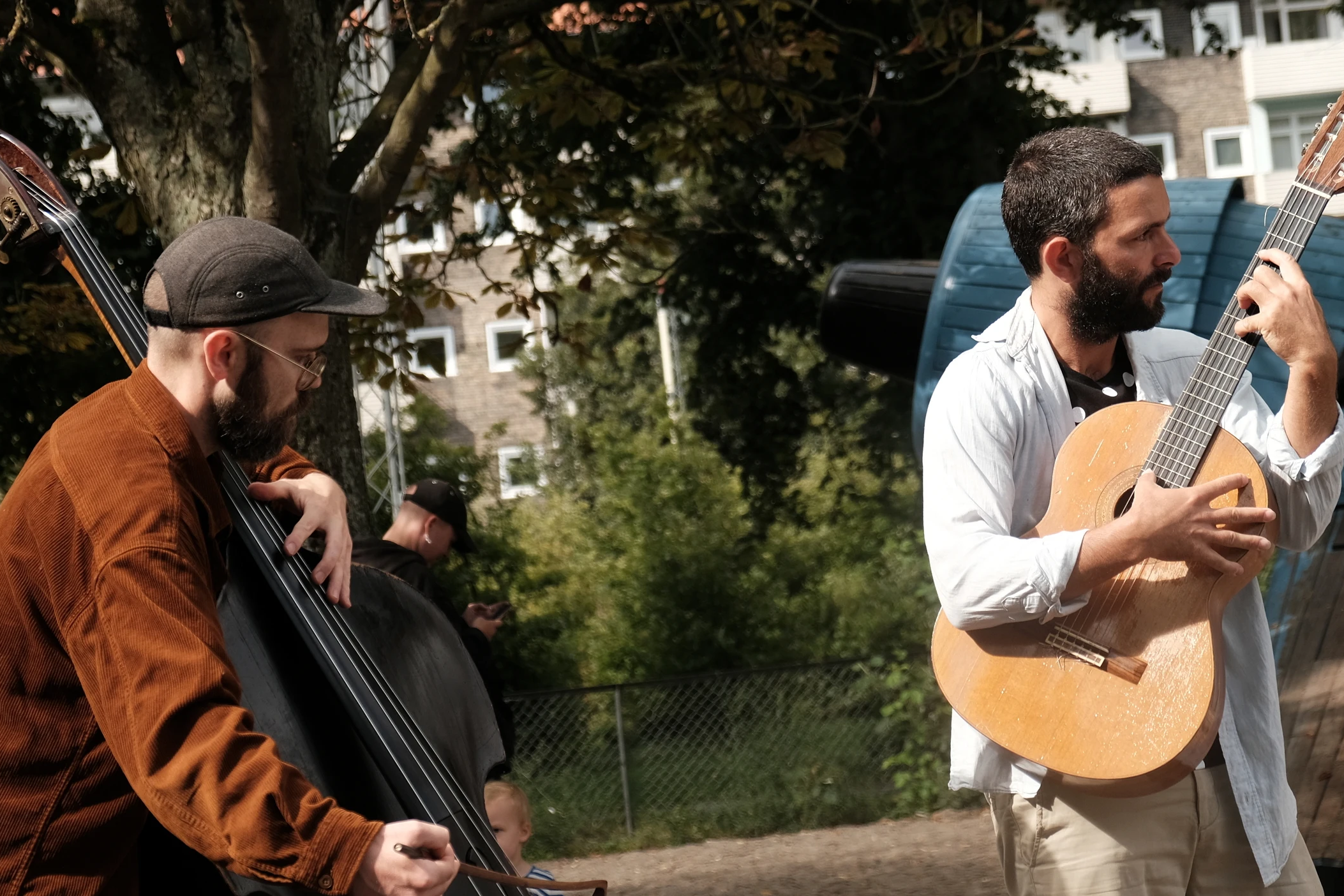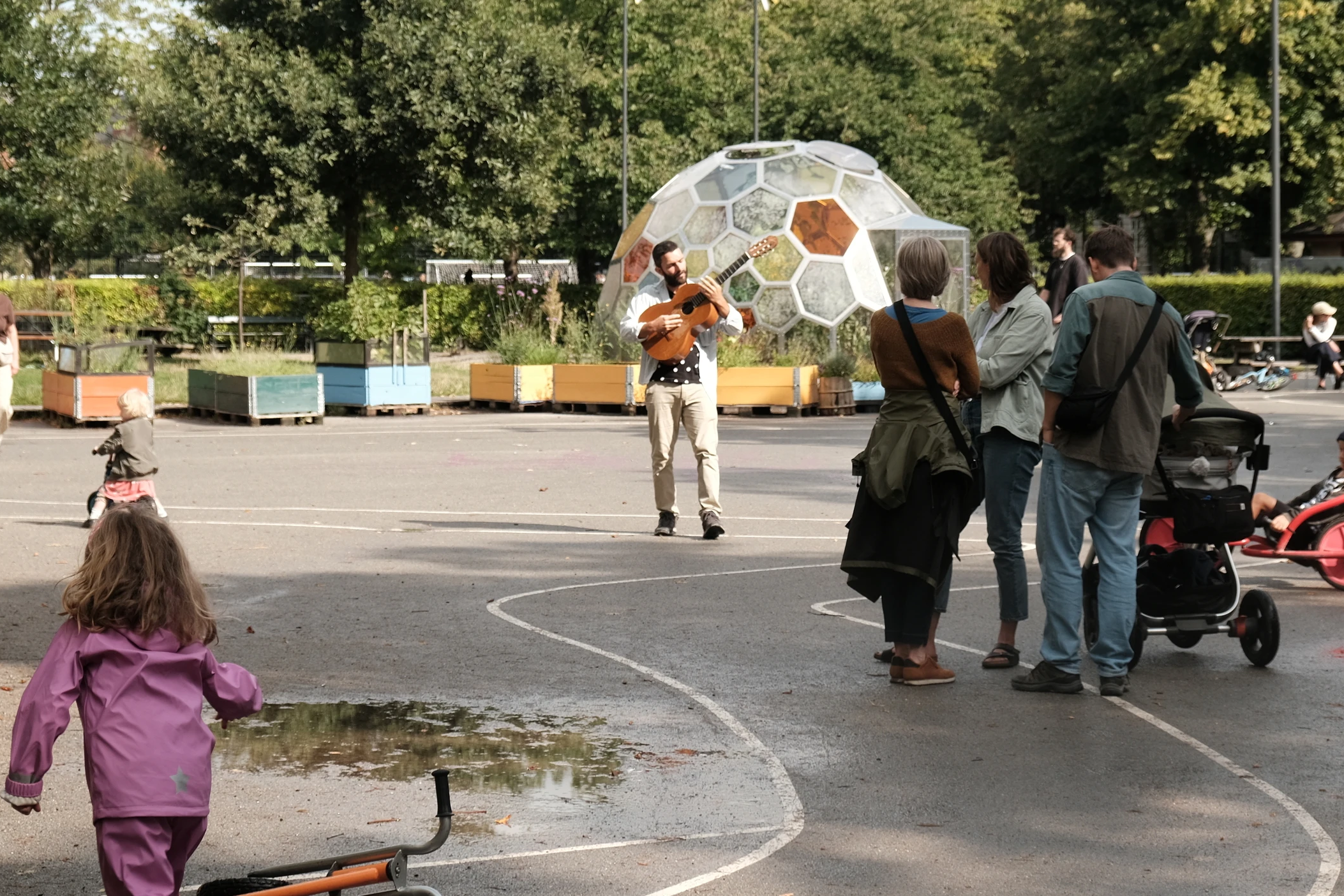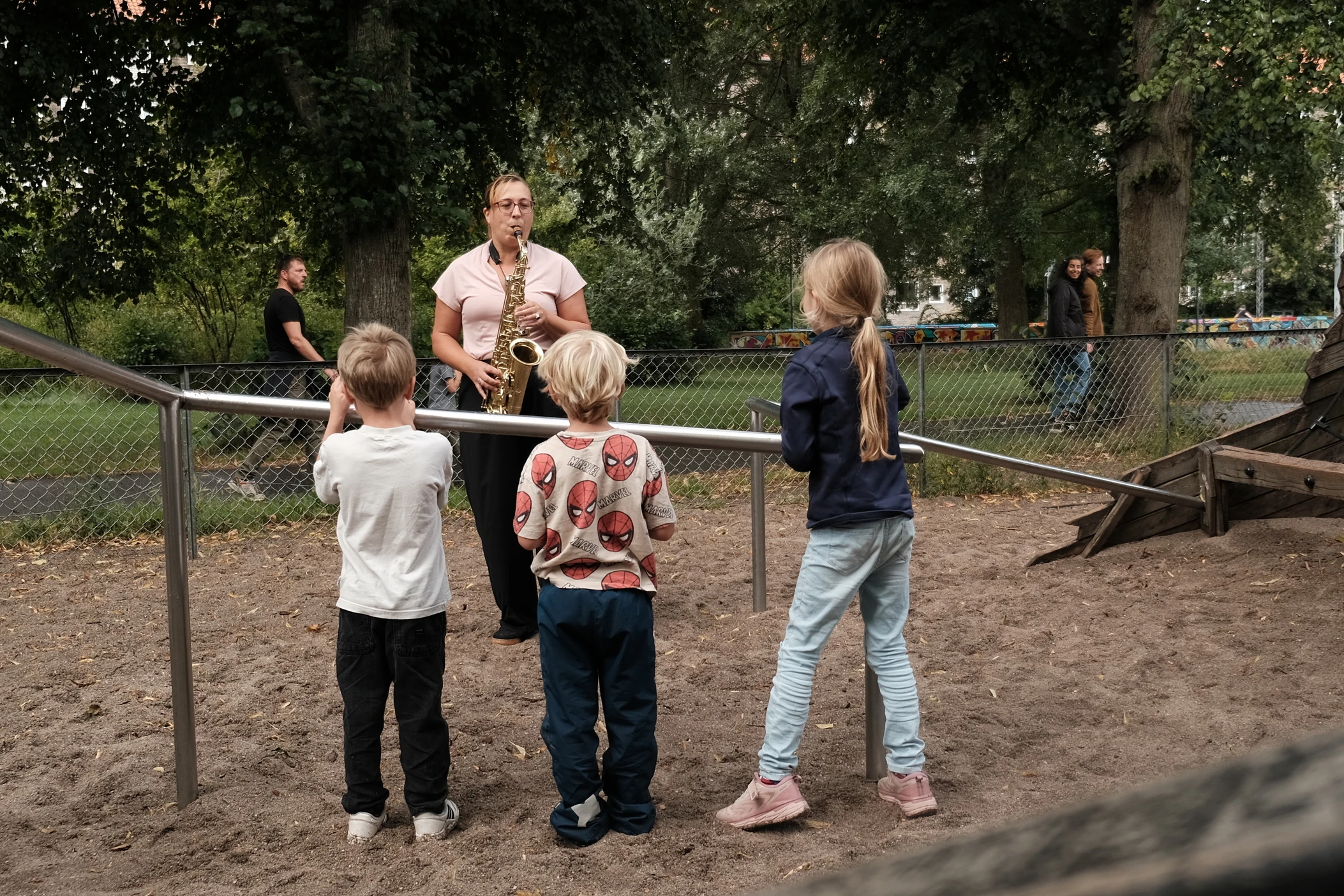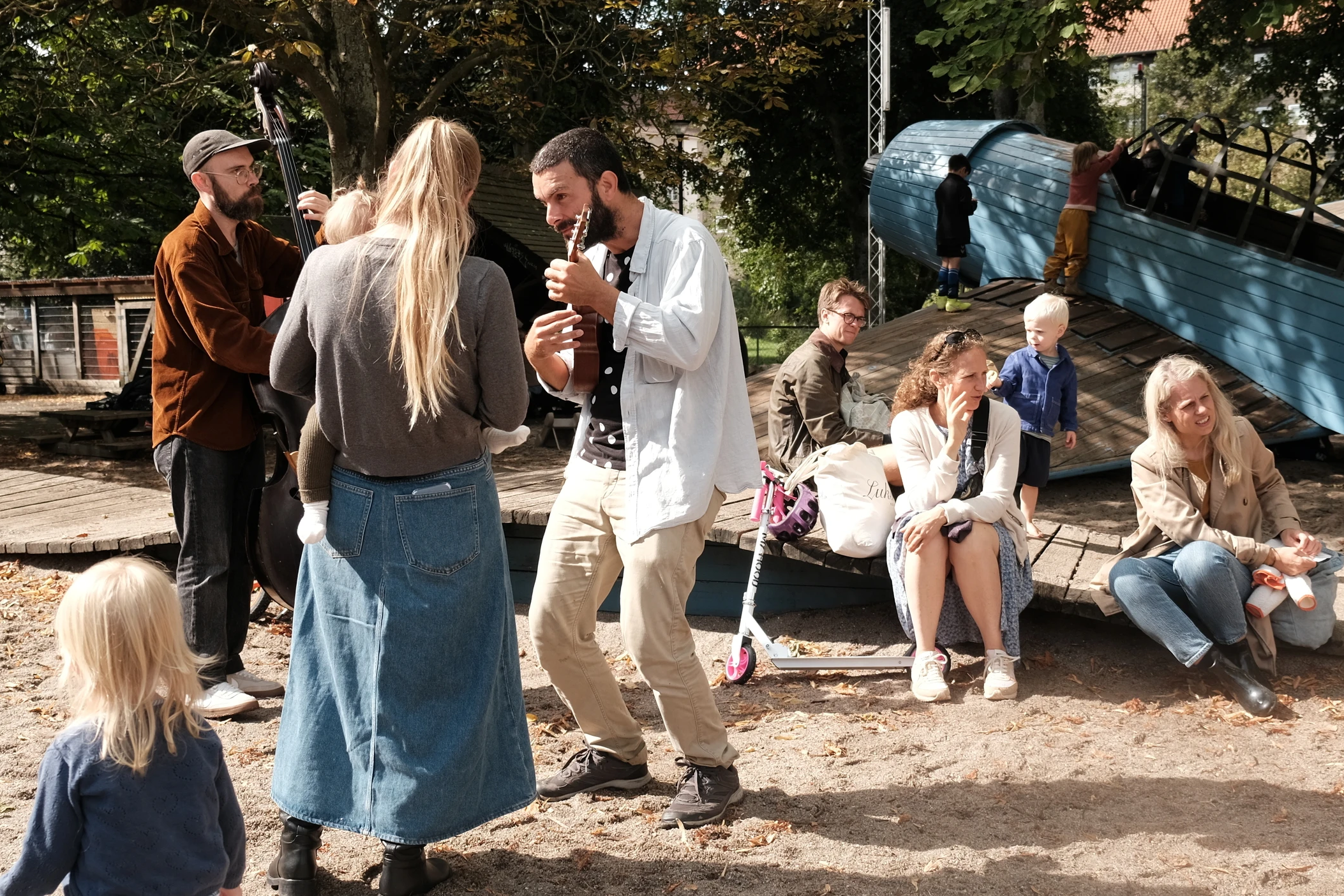Free Music for Kids explores innovative music teaching methods emphasizing free-form improvisation, spontaneous composition, and collaborative creation. It aims to create socio- cultural spaces where musical rules evolve organically, promoting active engagement between educators and children. The goal is to foster a dynamic learning environment where individuals of various backgrounds and expertise collaborate, exchanging ideas and skills to enrich the collective musical experience.
Free Music for Kids is an educational approach that places the relationship between educators and participants at the center of the process. Free improvisation, instant composition, and music creation are the main drivers of the process, fostering multiple relationships and interactions through musical language. The educator’s focus is on creating a safe, shared space where diverse personalities can feel comfortable exploring musical instruments and sounds individually and collectively. A creative flow that connects skills and identities in a collective learning process in which everyone presents their uniqueness and contributes complexity to the process of relationship and interaction.
Tracks
Theoretical foundations for our pedagogical philosophy
Our approach to engaging children in music involves a blend of imitation and individual exploration of musical instruments within a collaborative musical framework. Prioritizing learning through play, we minimize explicit instruction and actively participate in music-making alongside the children. As educators, we aim to facilitate learning by embracing spontaneous music practices and collective creation, promoting self– and other awareness through co-creation. Inspired by children’s natural learning processes, our approach challenges traditional teaching methods, with educators assuming dynamic roles within the group. In our interactions with children and educators, we prefer to use terms like ‘spontaneous music practice’ and ‘collective creation,’ aiming for inclusivity.
Fostering Interpersonal Relationships
The collaborative nature of free music creation cultivates complex interpersonal relationships, as individuals learn to listen to, adapt to, and harmonize with one another. These interactions nurture empathy, build trust, and promote a shared sense of purpose, thereby enhancing both individual and collective well-being. By engaging in this communal creative experience, participants not only find personal enrichment but also contribute to a richer, more interconnected social fabric.
Free Music for Kids in Copenhagen
Free music for kids is an ambitious project that aims to reach children and families throughout the city of Copenhagen by implementing 50 events in 2025. The project involves the collaboration of improvising musicians and numerous funding bodies such as Statenkunstfund, Copenhagen music Committee, Vesterbro Lokaludvalg, Bispebjerg.
Our aim is to analyze how spontaneous music in informal contexts can enrich the individual and foster a sense of community belonging. Through the analysis and comparison of audio and video documentation collected I will seek to identify specific characteristics that demonstrate how musical creation among children, artists, and parents can have a positive impact on individual well-being within the family and the community.
